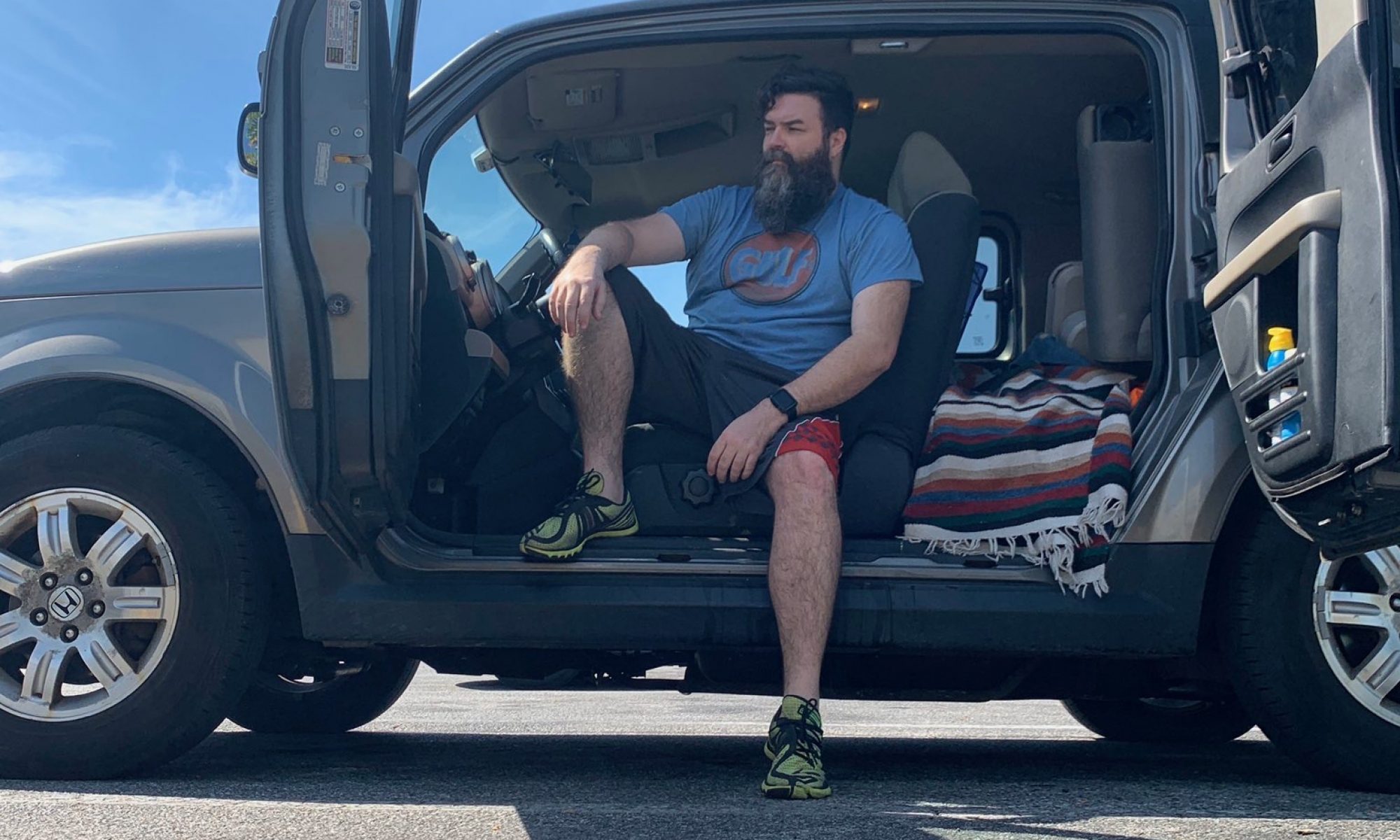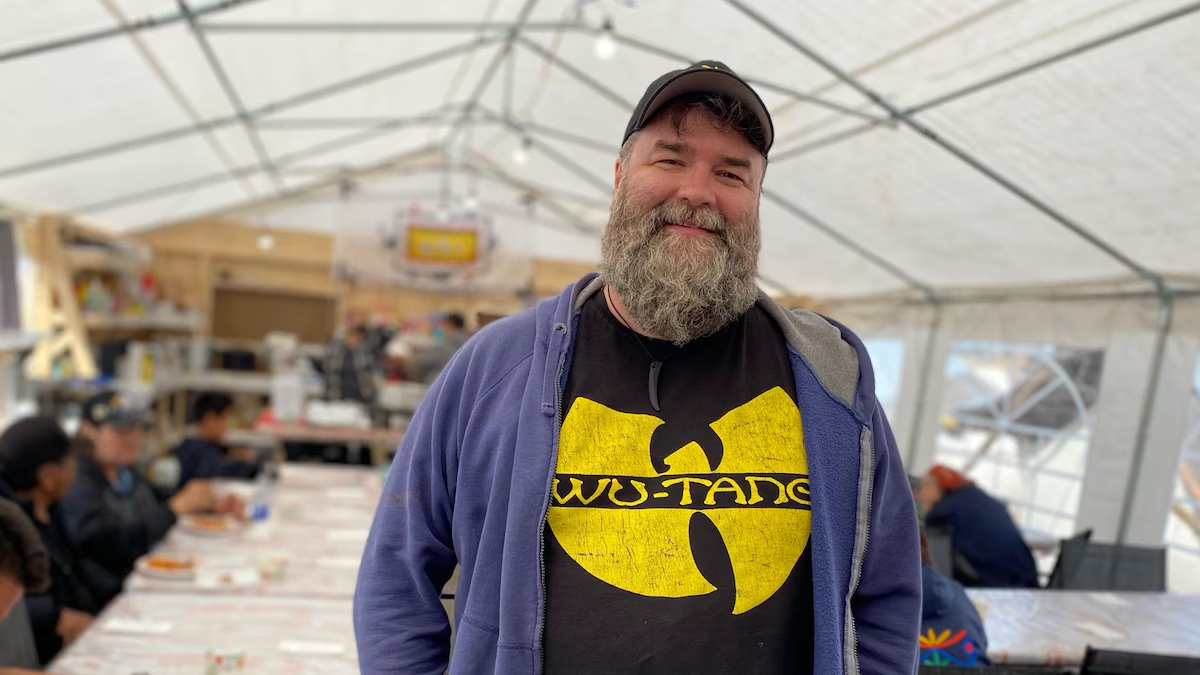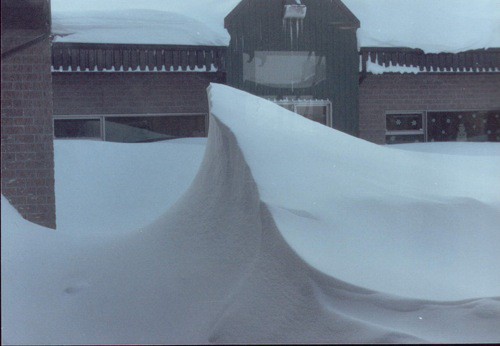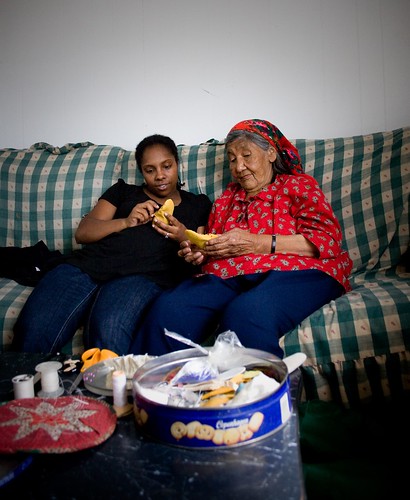Originally published in French by Radio-Canada on March 31, 2025. Translated and shared here into English so more people can read it.
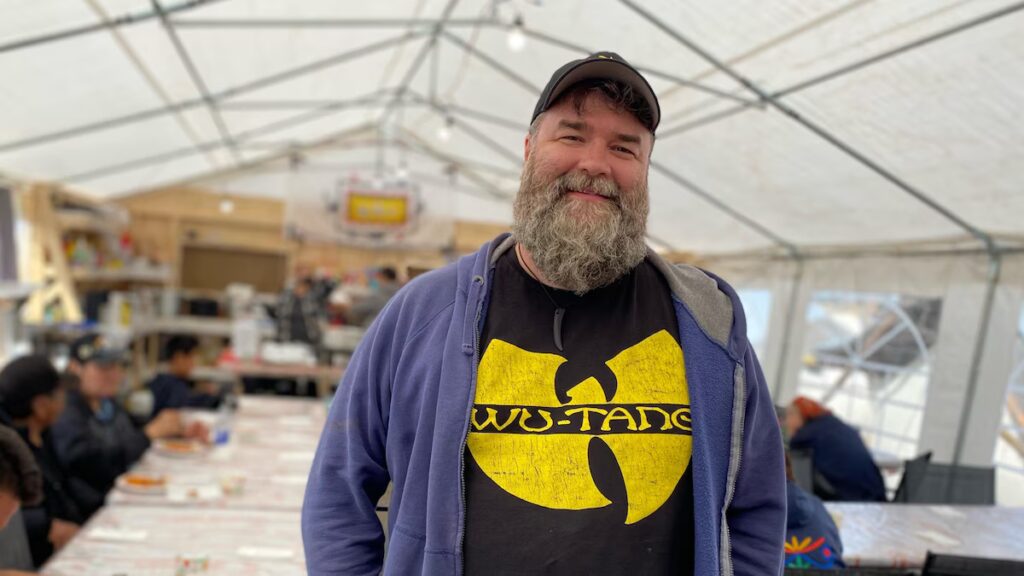
PHOTO: RADIO-CANADA / SHUSHAN BACON
If you’ve been following my work or journey for a while, you know how much Kawawachikamach means to me. This piece, written by journalist Shushan Bacon for Radio-Canada, captures a part of my story—how I came to speak the Naskapi language, why it matters so much to me, and what it feels like to belong deeply to a place that doesn’t show up on my passport. I’ve translated the article below so my English-speaking friends, supporters, and readers can read it too.
From Benjamin to “Binchibin”: An American Among the Naskapi
By Shushan Bacon | Radio-Canada Espaces Autochtones
Benjamin Jancewicz is one of those people you might come across in Kawawachikamach, the only Naskapi community in the world. Like the vast majority of its residents, he speaks Iyuw Iyimuun. And yet, he’s an American from Baltimore—not even a Canadian citizen. Though he comes from south of the border, it’s in Kawawachikamach where he feels most at home.
During the last trip to Schefferville by the Espaces Autochtones team to cover the 2024 Elders Gathering, this non-Indigenous photographer moved through the crowd, chatting with people in Iyuw Iyimuun (pronounced “ee-you-ai-mun”).
Despite his undeniably Caucasian features, he blends into the community as naturally as anyone. Everyone responds to him in Naskapi, the dominant language in this remote northern region.
People followed his directions in Iyuw Iyimuun as he photographed participants in the march commemorating the community’s fight against drugs and alcohol.
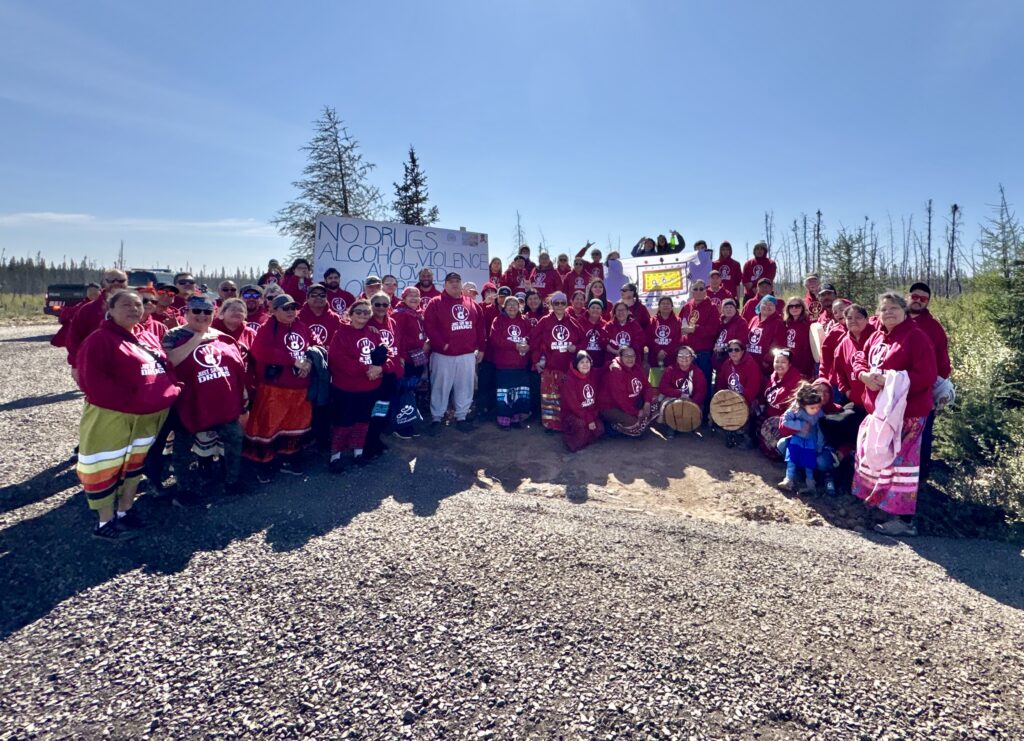
PHOTO: BENJAMIN JANCEWICZ
Language Learning as a Responsibility
Benjamin Jancewicz grew up in the community of Kawawachikamach. His father, Bill Jancewicz, was a translator hired by the Band Council in the 1980s to help write a Naskapi language dictionary. In doing so, he also worked on translating the Bible.
Young Benjamin, whom the elders affectionately call “Binchibin,” was four years old when he arrived among the Naskapi. When his father visited elders daily to study and learn the Naskapi language, “I’d go with him,” Benjamin says.
David and Susan Swappie were among the elders his father frequently consulted. “Susan Swappie is my noohoom [my grandmother],” Benjamin explains. She often made him Naskapi hats, and despite her memory issues, she still remembers him.
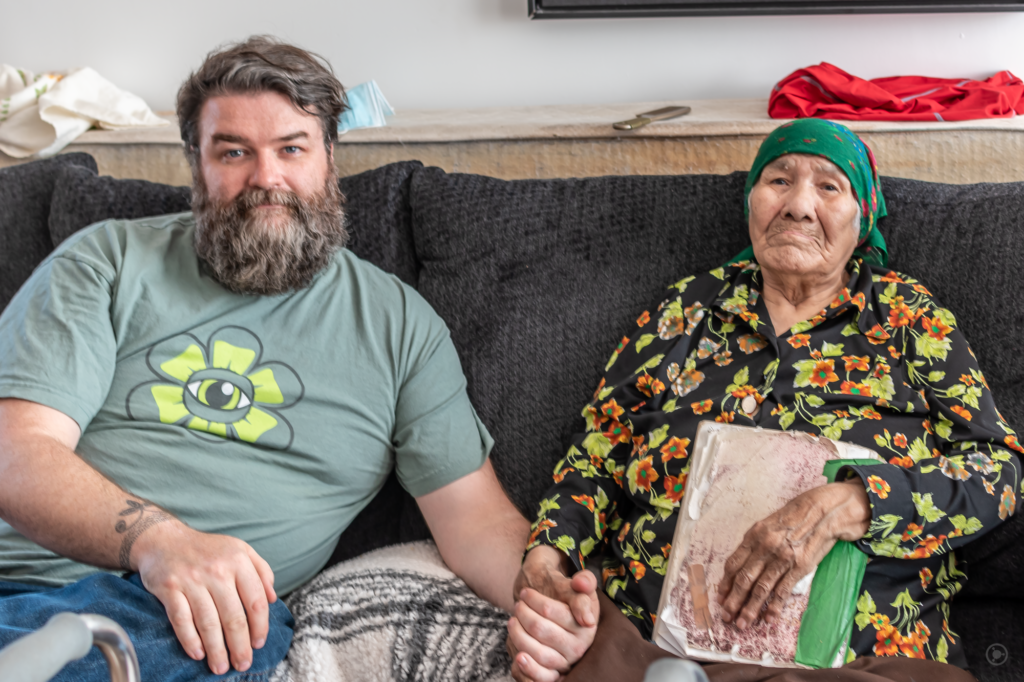
PHOTO: BENJAMIN JANCEWICZ
“Every time I visit her, she always holds my hand and doesn’t let go. To me, she’s like my grandmother. She is my grandmother. She treats me like I’m her grandson.”
Benjamin completed his entire schooling in Kawawachikamach. Learning the language came naturally, but today he considers it a point of pride—and even a duty—to keep the language alive by speaking it daily.
“For me, it’s the responsibility of white people to help—because we’re the ones who created this mess.”
According to the latest census conducted in 2021, only 530 people still speak Naskapi in Canada—and therefore in the world—a 29.3% drop since the previous 2016 census.
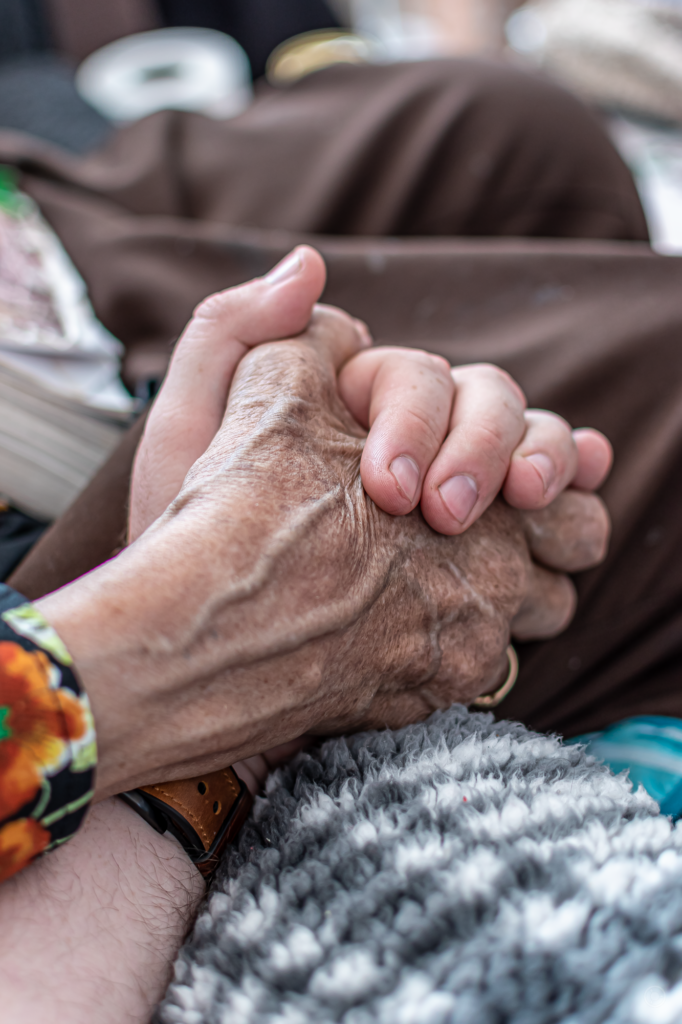
PHOTO : BENJAMIN JANCEWICZ
Caught in Immigration Limbo… Because of Language
At the moment, Pentshamen is back in Baltimore. As an American citizen, he’s required to return periodically. He’s been trying to obtain Canadian citizenship for three years, even though the rest of his family already holds it.
Back in the late 1990s, when the family applied together, “the government took seven years to process the paperwork. By then, I was already in the U.S. for university and had turned 18. They told my dad, ‘You have to remove your son from the application. He’s an adult, he’s 18.’”
Benjamin had to apply on his own. In the meantime, he finished his university studies in the U.S., got married, and had two children—who are now in university themselves. Since then, he’s divorced. But his goal was never to stay in the United States.
“I’m stuck here,” he says.
Ironically, the very thing preventing him from obtaining Canadian citizenship now is a language issue.
“The hardest part of the citizenship process for me is the French test. My French isn’t perfect. I have to pass a really solid French test to get citizenship. I told them, ‘I speak Naskapi and a bit of Innu,’ but they said that doesn’t count. Only French does.”
Every three or four months, Pentshamen returns to Kawawachikamach for about three weeks. He’s worked for the Naskapi Band Council for several years.
“I handle all their communications—website, Facebook, and I also design posters. They bring me in for special events like the Elders Gathering to take photos and videos to inform people locally and in neighboring communities who took part.”
Regardless of what his documents or immigration authorities may say:
“Kawawachikamach is my home,” he says without hesitation. “I love Kawawa. It’s home, and [the Naskapi people], they’re my people.”
Thanks again to Radio-Canada and journalist Shushan Bacon for taking the time to listen and share my story. If you’d like to learn more about the Naskapi language or community, or follow along with my work up north, feel free to subscribe or check out my latest journal entries.
